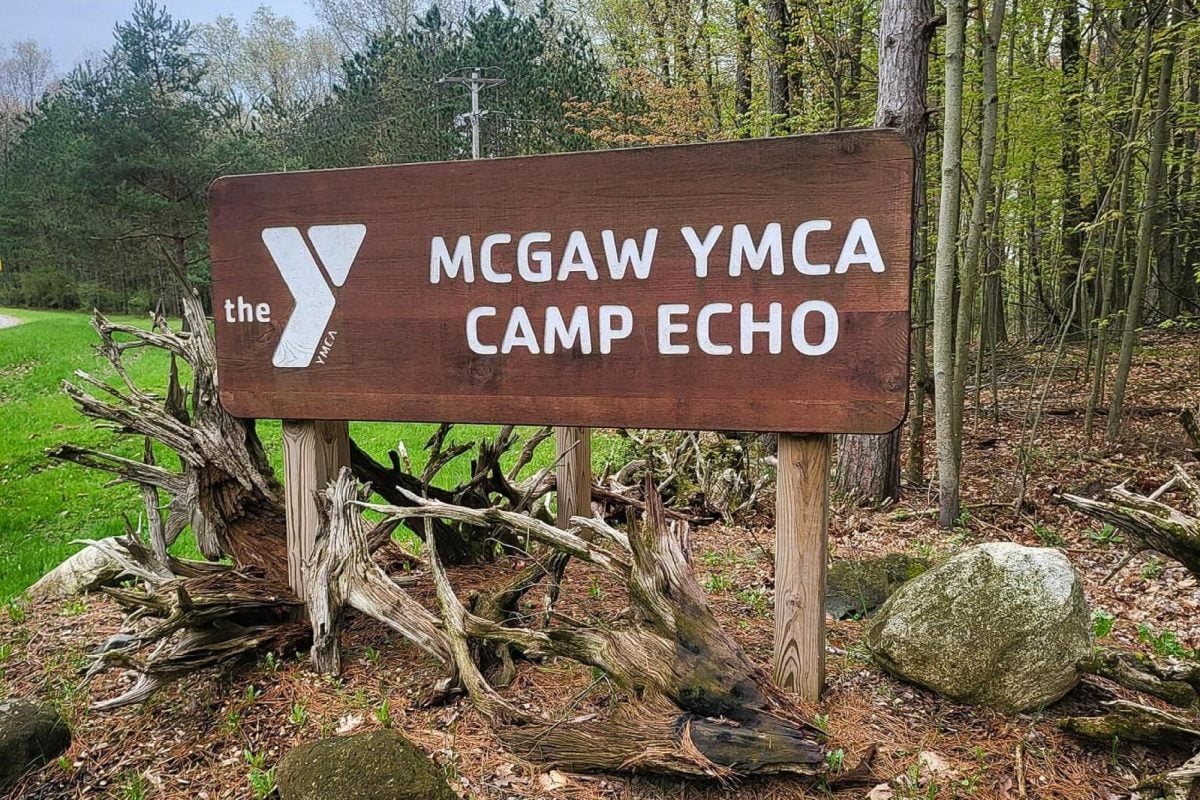Terry Brenner, then a recent high school graduate, joined Camp Echo as a seasonal worker in the 1980s, where she met her future husband, Jon Brenner. She said late-night conversations in cabins turned into long-distance phone calls and love letters, which transformed into a lifelong romance.
It ranked as one of countless milestones for Camp Echo’s alumni. But this year, the camp will celebrate perhaps its biggest one: 100 years of operation.
Founded in 1924, Camp Echo is a residential summer camp and is run by the McGaw YMCA in Evanston. It is located outside of Fremont, Michigan, on a peninsula surrounded by Ryerson Long Lake. The camp hosts traditional overnight summer camps for children from third through 11th grade, in addition to family camps.
Last summer, Camp Echo hosted approximately 1,500 campers and 200 staff members. Bernard Rocca, the branch executive director of McGaw YMCA, said the main focus of Camp Echo is growing young people’s sense of independence and community.
“I think an interesting piece of the overnight camp experience or overnight camp community is that it truly is like a small city,” he said.
This past October, McGaw YMCA hosted a kickoff celebration for the camp’s centennial, which drew more than 150 community members. There will be various celebrations throughout the year, including an Echo Fest Community Day at the McGaw YMCA in late April. The festivities will conclude the weekend of Sept. 20, when current Camp Echo families and alumni will be invited back to camp to celebrate the anniversary.
Amid these celebrations, however, Camp Echo is also reckoning with a complicated history. When the camp originally was founded in 1924, it welcomed only white, male, Christian campers. The summers of 1947 and 1965 were the first time girls and Black children, respectively, were allowed at Camp Echo, Rocca said.
Brenner said she’s excited for the camp to take the centenary as an opportunity for reflection. Camp Echo has introduced new initiatives to make the camp more inclusive for all campers’ experiences, including all-gender housing options.
“There will probably be some deeper understanding of Echo’s history and owning that, and not making it seem like it’s this idyllic place that never hit a missed note,” Brenner said.
Camp Echo had camp sessions separated by gender for many years.
Katie Trippi, the senior gift officer at McGaw YMCA, attended Camp Echo as a child and said she learned a lot from having a female-only space to develop.
“The impact of female leadership on my own leadership skills and understanding of my potential and development of my self-confidence and goals for my career grew out of those seeds that were planted at Camp Echo,” Trippi said.
When Camp Echo became fully co-ed in 1982, Trippi said she was surprised. But, when she returned to camp as a parent, she said she observed her children forming the same strong bonds and learning valuable leadership skills in Camp Echo’s co-ed space. In 2004, she joined Camp Echo as a full-time staffer.
Since then, Trippi has been developing an online database of all of Camp Echo’s previous campers and has found the names, birthdays and home addresses of Camp Echo alumni all the way back to the 1920s. She also helps keep track of the contact information of approximately 12,000 previous campers.
Camp Echo has helped develop the leaders of Evanston for several decades and carries that responsibility in the years to come, she said.
“I hope that camp will exist for every kid in Evanston for at least another hundred years,” Trippi said.
Email: shaelake2026@u.northwestern.edu
Related Stories:
— Camp Kesem to expand summer program to two weeks
— Camp Kesem receives record number of counselor applications



















